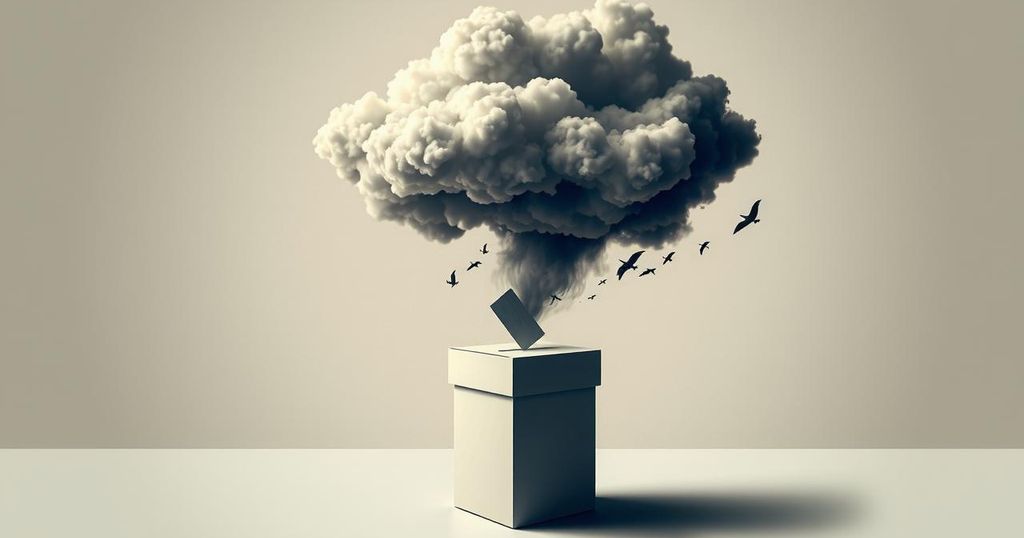World news
2024 ELECTIONS, ARGENTINA, ASIA, BR, BRICS, BUENOS AIRES, CHINA, CO, CORRUPTION, CUBA, DEMOCRACY, ECUADOR, ELECTIONS, EUROPE/ASIA, JAMIL MAHUAD, LATIN AMERICA, LUISA GONZALEZ, MANTA, MEXICO, NOBOA, NORTH AMERICA, PAC, PACHAKUTIK, QUITO, RUSSIA, SAN FRANCISCO, SAN FRANCISCO UNIVERSITY OF QUITO, SOUTH AMERICA, TRADE RELATIONS, U. S, UNITED STATES, VENEZUELA
Lena Nguyen
0 Comments
Ecuador’s Evolving Political Landscape: Implications for U.S. Interests
Ecuador’s recent elections have raised concerns for the U.S. as leftist candidates perform better than expected. Daniel Noboa faces a runoff against Luisa Gonzalez, aligned with former president Rafael Correa. With shifting voter dynamics and critical issues at stake, the upcoming election could reshape relations between Ecuador and the U.S., potentially leading to increased leftist influence in the region.
The results of Ecuador’s February 9 election signify troubling developments for the United States and democratic values in Latin America. The leftist populist party aligned with former president Rafael Correa performed unexpectedly well and is now positioned to contend vigorously in the upcoming runoff election on April 13. This aligns with rising concerns in the region about leftist governance, particularly against the backdrop of Correa’s ties to Venezuela.
President Daniel Noboa, at 37 years old and heir to a wealthy family, was anticipated to secure victory in the first round. Despite these expectations, he garnered only 44.2% of the votes, effectively tying with the Correa-supported candidate Luisa Gonzalez, who received 43.9%. The indigenous Pachakutik party candidate, Leonidas Iza, finished third with 5.3%, which heightens the stakes for deciding the electoral outcome.
The implications of Correa’s potential resurgence are profound, with observers like former Ecuadoran president Jamil Mahuad warning that Gonzalez would align closely with the Venezuelan left. He stated, “She is in tune with the socialism of the 21st century movement,” indicating her likely alignment with the BRICS nations led by China and Russia, thus isolating U.S. interests in the region further.
Correa’s term as president spanned from 2007 until 2017, ending with a conviction for corruption that forced him into exile. Historically, Correa has been antagonistic towards the United States, stemming from familial experiences with the U.S. prison system. Under his presidency, he dismantled a U.S. anti-drug base and implemented laws criticized for facilitating organized crime.
Experts like Santiago Basabe, a political scientist, predict Gonzalez’s chances of winning the runoff are strong due to the combined support she and Noboa received. According to Basabe, “There is only about 10% of the vote up for grabs,” suggesting that many Pachakutik voters may pivot to Gonzalez, bolstering her electoral position significantly.
Surprisingly, consultant Jaime Durán Barba found the first-round results unexpected, as most forecasts had indicated broader lead margins for Noboa. He maintains optimism about Noboa’s re-election, claiming that Iza’s indigenous followers do not strictly adhere to ideological divisions. They consider cultural identity over political affiliation, which may lead to diverse voting decisions.
In the following months, Noboa’s priorities will include combatting escalating drug-related violence and addressing the ongoing energy crisis in Ecuador. With homicides reaching record levels, swift and impactful actions are critical to regain public trust and effectively appeal to indigenous voters.
Without prompt and decisive effort, Gonzalez stands a significant chance of triumphing in the runoff. Many Ecuadorians remember Correa’s earlier presidency during an economic boom, with nostalgia often overshadowing the corruption and chaos associated with his governance. If Gonzalez wins, the ramifications for Ecuador and U.S. foreign policy could be considerable, posing new challenges for Washington and the region.
The electoral outcome in Ecuador is pivotal, as a victory for a leftist candidate aligned with Rafael Correa could lead to a significant shift in the country’s political landscape. This potential shift carries implications for U.S. interests and the broader struggle for democratic governance in Latin America. With Noboa’s administration needing to address pressing issues such as violence and energy crises, swift action will be essential to avert the ramifications of a Correa revival.
Original Source: buenosairesherald.com




Post Comment